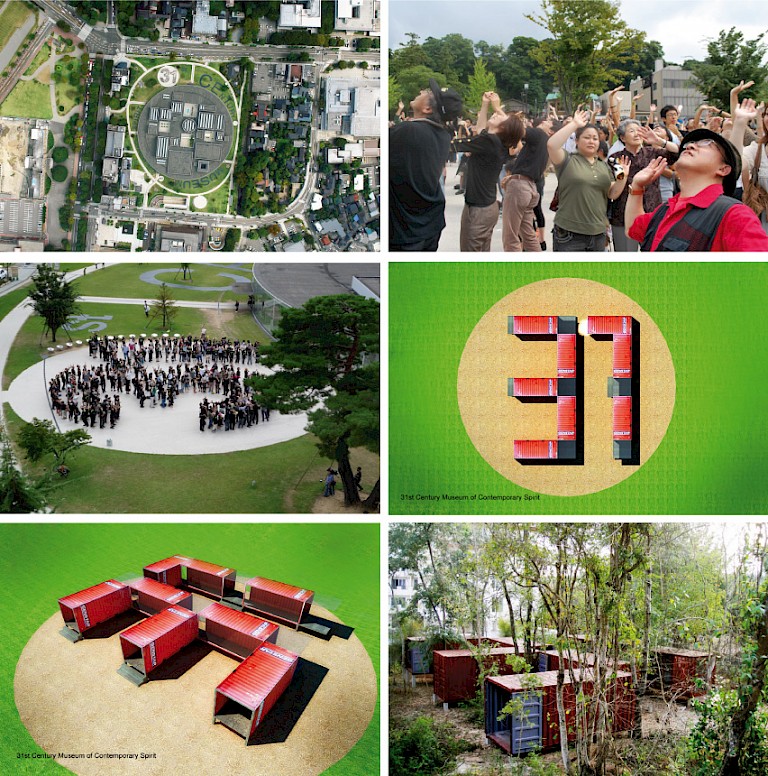



The 31st Century Museum was intentionally a cultural space for the people and positioned as an alternative to conventional museums. It was without a large permanent building, without the physical and metaphorical structures common to such institutions, without large investment, without deadlines and profit goals, and without concerns to drive visitor numbers. The shipping containers were set in open space with no fence or property demarcation, inviting exploration and anti-materialism. Entry was free as were cups of tea. Unlike a typical museum, where visitors progress via a considered route through exhibition or building, the open containers and thoughtfully placed tree stumps allowed visitors to criss-cross zones and spaces, creating their own understanding and experience of the project. Impromptu workshops and lectures took place, depending on the artists, curators, art historians and members of the public who visited the project. There was no singular or fixed experience, just as there is no singular experience of life or spirit.
31st Century Museum of Contemporary Spirit is a large, interactive and participatory project, a micro-utopian idea seeking to balance learning with life and social engagement in a communal place. The project is intentionally set in an open space with no fence or property demarcation, inviting exploration and anti-materialism.The project explores issues such as the relationship between role models and positive change, innovative and sustainable solutions for environmental problems, and approaches to coping with the stress of increasing urbanisation.
Lertchaiprasert’s interest in collaborative art led to the establishment of the 31st Century Museum of Contemporary Spirit in 2008—an initiative inspired by his participation in the “Stimulating Cities with Art” symposium at the 21st Century Museum of Contemporary Art, Kanazawa, Japan. The 31st Century Museum has since materialized in various forms in Chiang Mai (as a structure made of refurbished shipping containers in 2010), Chicago (as a workshop and exhibition at the School of the Art Institute of Chicago in 2011), and Japan (as a book project for the Niigata Art Festival in 2012). The project, which collaborates widely and welcomes public visits and participation, will continue until 14.02.2016.
All copyright belongs to Shanghai Academy of Fine Arts, Shanghai University.

